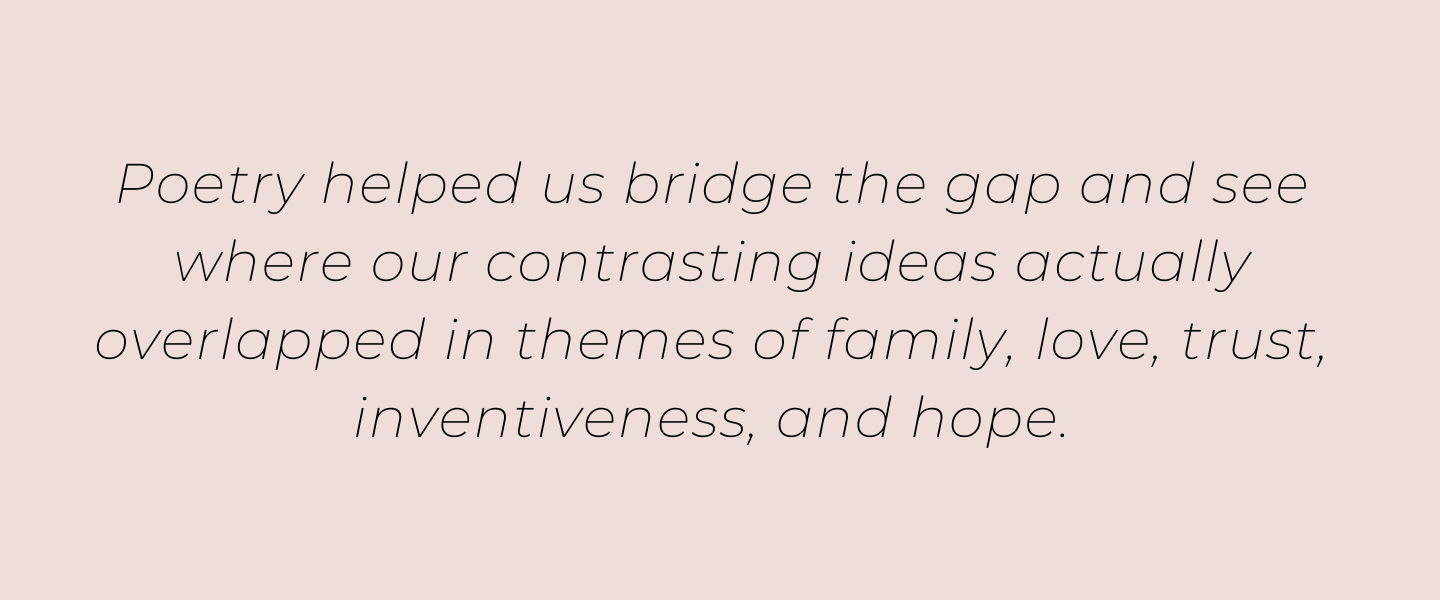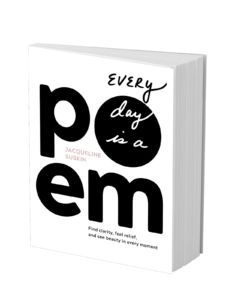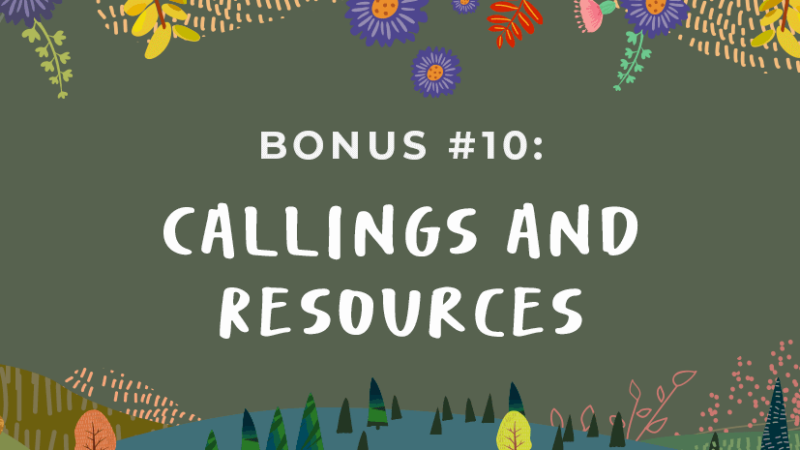POETIC MINDSET TIP: YOUR AWE CAN BE CONNECTIVE
Try applying a mentality of awe when you’re interacting with someone who lives a life very different from yours. Let your awe be the inspiration for a connection. How did they come to believe something that makes you so uncomfortable? What is the root of their behavior? Maybe this person has a dissimilar political view. Maybe they live in a rural town, and you live in a city. Maybe they grew up practicing a particular religion, and you didn’t. These are the big facts that surround the difference between you, but maybe this contrast can be intriguing instead of off-putting? When I find myself on a disparate page from someone else, I try not to close up. I try to lean in to discovery. It’s frequently these occasions that surprise me the most and give me new insight.
When I let myself stay curious about another person’s point of view instead of shutting down, I’m challenged to see with a new lens—and that feels creative. What would I have overlooked if I hadn’t led with a sense of reverential respect? For example, through Poem Store, I developed very unlikely friendships that are still a huge part of my life.
From a familial bond with a timber baron to a deep camaraderie with a wealthy businessman, I found myself open to all kinds of folks I might normally shut out if I weren’t in the mode of poetic openness.

These relationships continue to teach me how to develop compassionate language and an availability for dialogue that focuses on similarities, respect, and humanity, as opposed to difference, disdain, and judgment.
Letting your interest in a person’s inner world outweigh your differences could have unifying results. Awe is often the key to the similarities we all share. It’s our curiosity that links us, and these connections can cause the largest transformations.

Housemates
Pierre Talón lives
in the kitchen,
close to the kettle
with an invisible web.
His brothers and sisters
share the same name.
Long glass-like legs
and dark teardrop bodies.
Penelope is on the front porch,
blending with the potted plant,
her green abdomen longer each day,
her hind legs like mechanical armor.
Pierre Talón catches the flies
and Penelope reminds me
to pause, peering between blossoms.
The spider never leaves, just changes
corners and sizes, and dodges the steam
when I make tea. The grasshopper
greets me for months, until one day
she sheds her skin and leaves me
with a perfect paper version of herself.
This is an excerpt from Every Day Is A Poem: Find Clarity, Feel Relief, and See Beauty in Every Moment by Jacqueline Suskin.
 Jacqueline Suskin has composed over forty thousand poems with her ongoing improvisational writing project, Poem Store. She is the author of six books, including Help in the Dark Season. Her work has been featured in the New York Times, the Atlantic, and Yes! magazine. She lives in Northern California. For more, see jacquelinesuskin.com.
Jacqueline Suskin has composed over forty thousand poems with her ongoing improvisational writing project, Poem Store. She is the author of six books, including Help in the Dark Season. Her work has been featured in the New York Times, the Atlantic, and Yes! magazine. She lives in Northern California. For more, see jacquelinesuskin.com.

Sounds True | Amazon | Barnes & Noble | Indiebound | Bookshop





 Jacqueline Suskin
Jacqueline Suskin
